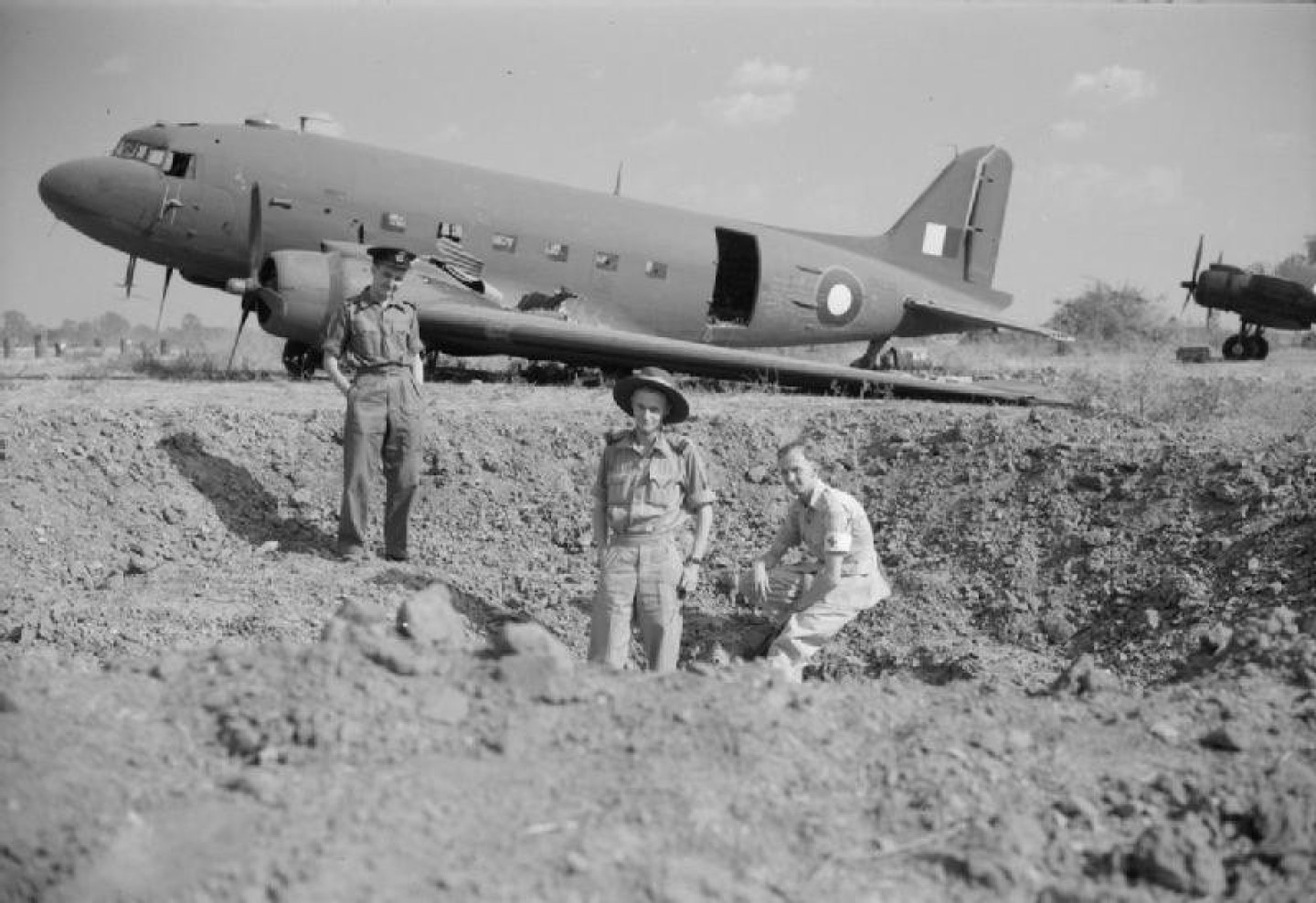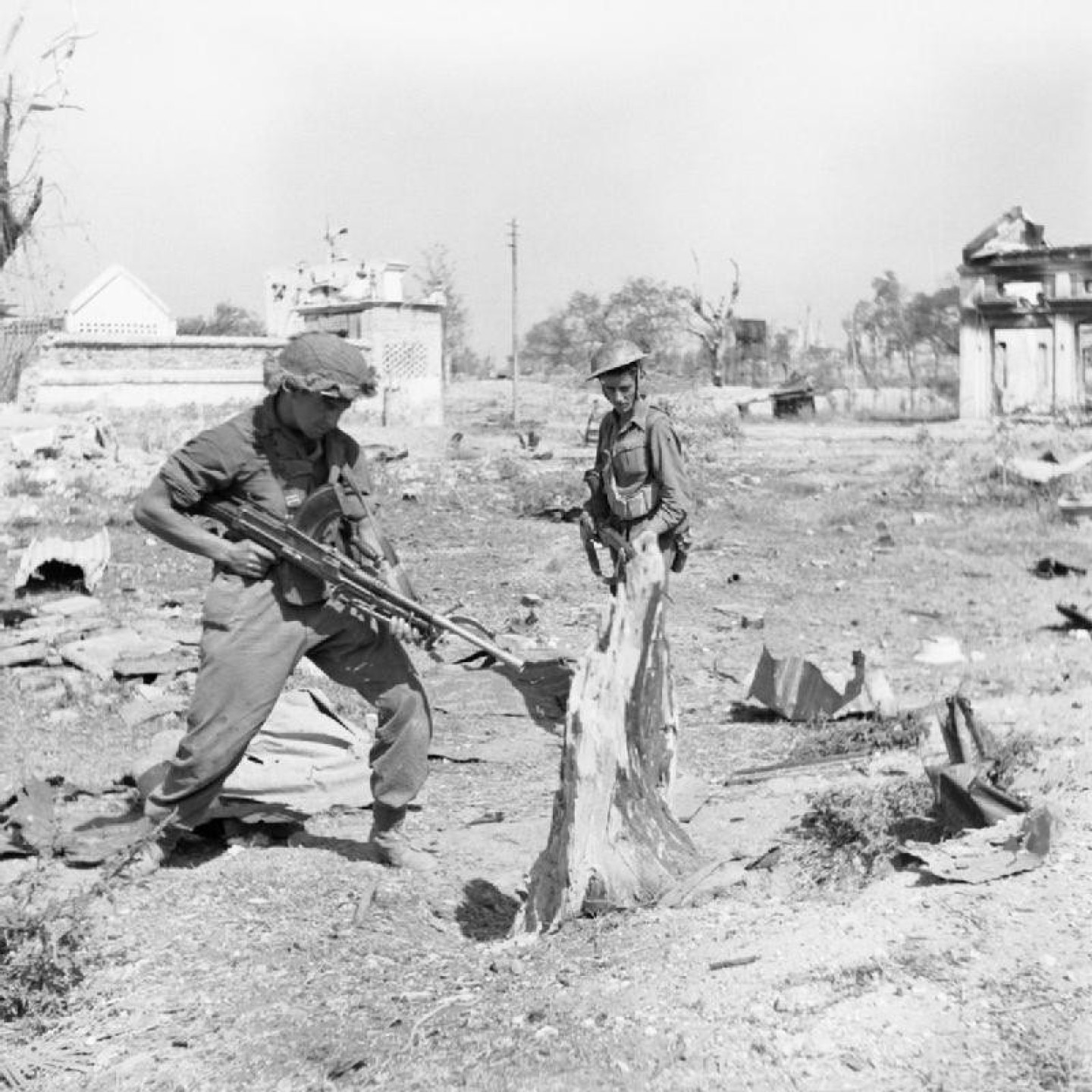Remembrance Day: The Battle of Meiktila and the Forgotten War in Burma

The International Business Times is marking Remembrance Day with a series of forgotten stories of war.
By 1945 victory in Europe was assured but in the Far East the Empire of Japan was still making headway. The Battle of Meiktila in the jungles of Burma, however, marked a turning point in the region where intelligent British tactics, then bravery and mettle saw off a Japanese Army considerably bigger in size.
The 17<sup>th Indian Division had been severely overrun by the Japanese in Burma and it had left Britain with no choice but to reinforce the region.
British troops travelled to India for two months across treacherous seas in gloomy conditions to shore up defences in Burma, where Japanese forces had taken a stronghold which had threatened to destabilise the area. The climate and terrain was completely unrecognisable to many of the troops who had landed there, with undeveloped transport links, varying humid and dry conditions and the threat of an imminent monsoon which would make military operations nigh on impossible.
Troops were sent into the field after just two days of basic training at the Depot at Agartala, a point that often goes without mentioning.
Despite the British reinforcement, allies still faced a Japanese army several times the size of their own and without the type of artillery needed to sustain a substantial dent. The allies needed to be clever.
By December 1944 General Slim, commander of the XIVth Army, decided to head to the Japanese communications and administrative centre in Burma in Meiktila. But in a brilliant deception plan, he drew enemy forces to the north, before attacking a much weakened defence in the southern town of Meiktila.
British forces took the town with ease and continued their march down south to capture Rangoon.

Meanwhile the 17<sup>th Indian Division as well several other British regiments, stayed so they could the destroy the last remaining Japanese resistance in Meiktila. By Mar. 5 1945 the allied forces successfully cleared the town as well as the all-important tactically positioned airstrip on the eastern side. Now RAF planes would be able to fly much needed reserves from the coast deep into the mainland in a part of the wider plan to dominate Burma completely.
Unknowingly, however, General Kimura of the Japanese 33<sup>rd Army had marched his troops back down to Meiktila and surrounded the town effectively putting British and Indian regiments on an island with the airstrip as its way of transporting essentials into the area.
It left the allies with no choice: to reinforce and resupply the town with aircraft. This meant RAF pilots having to risk their lives to land there avoiding both artillery from the ground and other enemy planes close by.
Immediately, Wing Commander Michael Lander's 1307 Wing, consisting of several local squadrons in the area flew into Meiktila and were placed under the command of the 99 Brigade.
Their task was sweep the area every morning to ensure that the area was clear for supply planes to bring in reserves. It was a highly dangerous task, as the pilots knew that at any moment they could have been ambushed, but as Wing Commander Lander said: "It was necessary."
At night time, all personnel and equipment was taken inside for the planes to prepare for the imminent Japanese attack. Those few days were torture for the men, knowing that at any moment the enemy would open fire.
After a few days, on Mar. 15, they did.
The airfield was the obvious target and was immediately closed. But sensing the importance of keeping it open, allied forces were quick to respond to the threat by using tactical airstrikes to neutralise the threat from the ground. The airfield was reopened, but remained shut during night time hours.
Unknown to the allies, Japanese forces took advantage of this and, overnight, positioned themselves within striking distance of the airfield.
When two regiment flights from the2708 Squadron left for their routine sweep the next morning, they came under heavy fire. But in a counter attack, ground troops quickly responded and pushed the Japanese forces back several hundred yards. Although one plane was shot down, flown by Flight Sergeant Norman Gerrish, he survived and continued to shoot at the enemy by grabbing a Bren gun, firing endless rounds of bullets.
The intense flight, which lasted for two hours, left seven allies dead but a remarkable 150 Japanese had died during the conflict. It was an example of incredible bravery which earned Gerrish the Military Medal.
At end of March reinforcements finally arrived and that ended the two week standoff in Meiktila. Severely under equipped and with only a handful of men on standby, the allies defended the airstrip which represented turning point in the region.
British Armies went south once more to capture other towns including Ragoon which forced Japanese troops into an unfavourable corridor between the Irrawaddy, in the lower reaches of the Arakan and the rocky mountains of Pegu Yomas, from where the only exit to safety was along the Japanese held hills of Shan to the east.
The allies had finally had the upper hand in Burma.
© Copyright IBTimes 2025. All rights reserved.





















